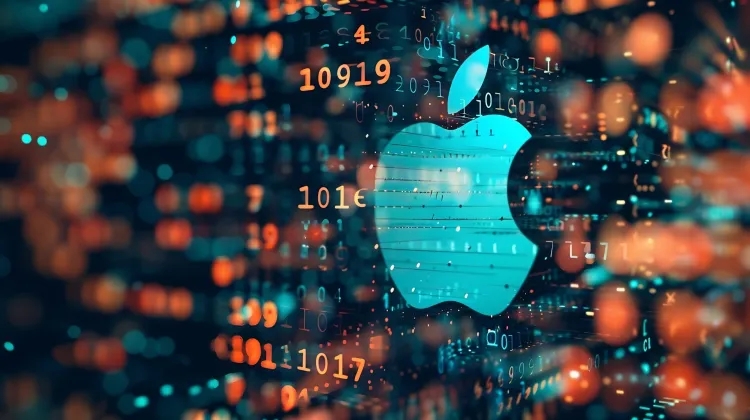
Apple recently inked an agreement with stock photography provider Shutterstock that will license millions of images for training its artificial intelligence models, according to reports by Reuters. This deal is estimated to be worth between $25 million and $50 million and puts Apple among many tech titans competing to gain access to massive pools of data to power their AI systems.
Sources close to the matter told Reuters that Apple, along with Meta, Google and Amazon, has recently signed licensing agreements with Shutterstock in order to access hundreds of millions of images, videos and music files in its library. While details of Apple’s agreement remain unknown, Shutterstock Chief Financial Officer Jarrod Yahes confirmed to Reuters that initial deals ranged between $25-50 million each with some later being extended or renewed.
As demand for AI training data surges, companies have turned to various sources for content. According to over 30 people familiar with such deals, prices can differ depending on both type and buyer; Daniela Braga of Defined.ai reportedly told Reuters that companies typically pay $1-2 per image and $2-4 for short form video with longer films costing from $100-300 an hour and $0.001 per word rates being charged as standard rates.
Privacy Concerns Reign In Its With AI making such rapid advancements over recent years, a battle is raging over which data sets will be used to train these systems. Tech giants like OpenAI, Google, Meta and Microsoft have used vast troves of online information – such as news articles, books and social media posts without explicit authorization or compensation to content creators – without asking permission first or providing adequate compensation.
Publishers and creators who believe their intellectual property is being exploited have become incensed over this development. For instance, The New York Times filed suit against OpenAI and Microsoft for copyright infringement over allegations that millions of its articles have been used to train chatbots that now compete with its publication; seeking billions in damages as well as destruction of AI models with NYT content.
At this juncture in the legal challenges surrounding artificial intelligence (AI), some are calling for an AI licensing system in which AI companies would pay content owners for training data access. At a Senate hearing, lawmakers from both parties supported media industry demands for OpenAI and others such as OpenAI to license news articles used as training data by OpenAI; leaders from National Association of Broadcasters, News Media Alliance, and Conde Nast advocated mandatory licensing stating any unauthorized use would violate copyright law.
However, OpenAI and some experts argue licensing all training data is unfeasible and that mandatory licensing would give big tech firms too much power while burdening AI startups. There remains some debate as to whether licensing should be legally mandated or simply an industry norm.
Others are making lucrative data deals; Google recently inked an exclusive access agreement with Reddit data to train its AI systems reportedly at a reported annual cost of $60 Million per year. As we move toward developing artificial intelligence technologies, the rapidly changing legal and ethical landscape surrounding AI training data will become even more crucial to future developments of the industry; privacy concerns will only intensify the struggle over this valuable resource.
The Battle for AI Supremacy
The Shutterstock deal serves to underscore the role that data plays in creating cutting-edge artificial intelligence systems. As Apple, Google and Meta vie to build more advanced AI models than one another, access to vast and varied datasets has become key differentiators between them. Apple plans on licensing millions of images from Shutterstock to enhance its AI capabilities across a range of applications ranging from computer vision and image generation through virtual assistants and augmented reality systems.
Tech giants such as Apple are willing to invest millions of dollars for AI training data, which highlights its immense economic potential. As more industries – from healthcare and finance to entertainment and education – leverage AI solutions, the market for them is expected to experience rapid expansion over the coming years. By making large investments now in developing AI capabilities, Apple positions itself to capture an even larger share of this rapidly expanding market.
Apple has declined to discuss specific details of their Shutterstock deal and instead issued a general statement declaring its dedication to building AI systems responsibly and ethically, while respecting intellectual property rights of others.
Business Research Insights estimates the AI data market, estimated by them as currently worth an estimated $2.5 billion and projected to grow into nearly $30 billion within 10 years, at present and points out the high stakes involved in tech giants’ battle for AI dominance. As industry grapples with implications of this gold rush for user privacy and rights.


